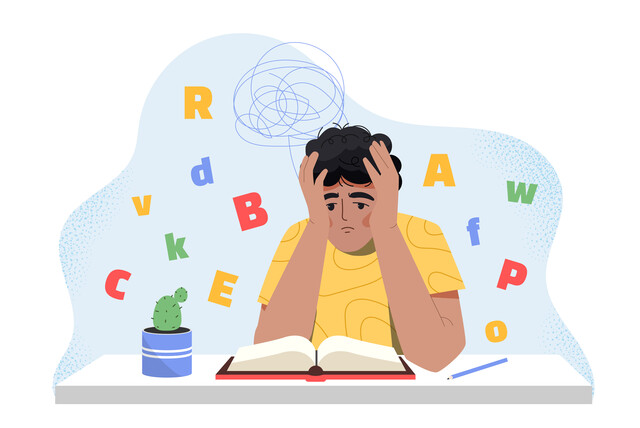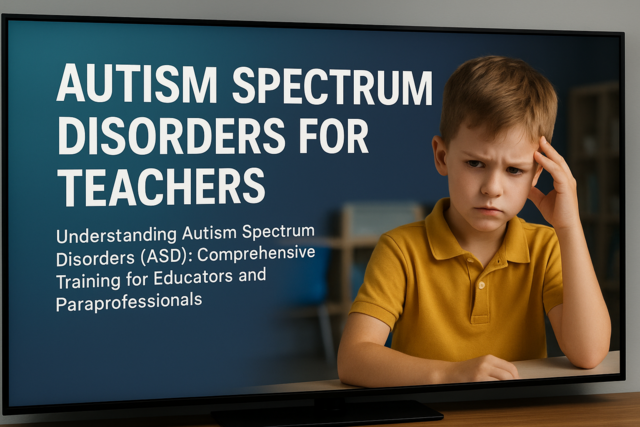Autism 101
Empower Understanding, Foster Inclusion

10 Hours average completion time
1.0 CEUs
11 Lessons
17 Exams & Assignments
807 Discussions
11 Videos
22 Reference Files
97 Articles
Mobile Friendly
Last Updated November 2025
Imagine a journey where knowledge leads to understanding, where myths are shattered, and where you emerge with the power to change lives--starting with your own. That's what this course offers: a transformational experience that takes you deep into the world of autism, not as a clinical condition, but as a uniquely diverse and human experience that affects millions of individuals and families around the world.
This course isn't just another lecture or a collection of facts. It's a powerful exploration of autism, designed to give you the tools, insights, and confidence to make a real difference. Whether you're a parent navigating an unexpected diagnosis, an educator wanting to better support your students, or someone simply seeking to understand autism in a deeper way, this course is your gateway to a world of possibilities.
From the moment you start, you'll realize that autism is more than what meets the eye. We go beyond the surface, beyond the outdated myths, and into the heart of what makes autism a spectrum of human experience, filled with challenges--but also remarkable strengths. You'll discover how autism, far from being a limitation, can be a source of incredible talent, creativity, and potential when nurtured with the right understanding.
But this course is about more than just theory. It's about real-world impact. You'll learn how to recognize the early signs of autism, how to approach treatment options with confidence, and how to support not only those on the spectrum but their families as well. You'll come away knowing how to advocate for inclusive education, how to create environments where those with autism can thrive, and how to communicate in ways that build trust, empathy, and connection.
Consider the stories of people like Dr. Temple Grandin, a brilliant mind who, despite the challenges of autism, revolutionized the agricultural industry and became a global voice for neurodiversity. Think of the countless children whose futures have been transformed because someone--perhaps a teacher, a parent, or a caregiver--understood their unique way of seeing the world and gave them the tools to succeed. These are not just inspiring anecdotes; they are proof of what happens when we truly understand autism.
What sets this course apart is not only the depth of knowledge it provides but the way it empowers you to take action. Every module is crafted with care, designed to bring you practical, actionable strategies that you can use right away. You'll explore the latest research, hear personal stories that resonate with real-life experiences, and gain insights that will forever change the way you see autism.
By the time you complete this course, you won't just be more informed--you'll be transformed. You'll feel a deep sense of purpose, knowing that you have the skills and understanding to make a real difference in the lives of individuals with autism. You'll have the tools to build bridges, not barriers, and to foster an inclusive world where everyone can reach their fullest potential.
Join us on this journey and take the first step toward becoming a true ally and advocate. This isn't just a course--it's a movement toward a more understanding, more inclusive future. Empower yourself today, and in turn, empower others. Your journey of transformation begins here.
- Family dynamics management skills
- Strategic planning for autistic adulthood
- Supporting autistic individuals confidently
- Recognizing diverse autistic experiences
- Navigating autism treatment options
- Personalized autism care advocacy
- Effective communication with autistic individuals
- Creating empathetic support networks
- Enhanced understanding of autism spectrum
- Challenging autism myths effectively
- Advocating for inclusive education environments
-

Basic Parenting Skills
-

Conflict Resolution
-

Positive Parenting Techniques
-

Critical Thinking Skills
-

Understanding Childhood Obesity
-

Behavior Management 101
-

Sociology 101
-

Building Self-Esteem in Children
-

Anger Management Techniques
-

Innovative Thinking Skills
-

Creative Thinking Skills
-

Healthy Relationships
-

Introduction to Abnormal Psychology
-

Problem Solving Strategies
-

Second Grade Curriculum
-

Child Abuse Recognition, Investigation, and Protection
-

Assertiveness Training
-

Mediation 101
-

Learning Disabilities
-

Confidence Building
-

Personality Development
-

Early Childhood Development
-

Emotional and Behavioral Disorders
-

Child Safety for Parents
-

Autism Spectrum Disorders for Teachers